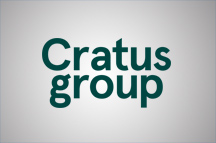As we sort out our Christmas party diaries and prepare for the annual ordeal of hearing “Last Christmas” and “Fairytale of New York” over one hundred times in under four weeks, the UK’s politicians are looking forward to the year ahead.
After a chaotic and tumultuous 2024, some were no doubt hoping that 2025 would bring much needed calm and stability. However those hopes have been largely shattered now we have the second coming of “the Donald” (this time devoid of guardrails and vowing revenge on all he claims have wronged him) in the White House. Moreover, with the geopolitical situation more perilous than ever in Ukraine and the Middle East, we can expect Foreign Policy and Defence to continue to dominate Sir Keir Starmer’s premiership meaning he will continue to spend much of his time outside of the country. However, with storm clouds overhead growing darker by the day, the business of local government and domestic politics continues.
With this in mind, now is a good time to assess the upcoming political landscape as we look forward to 2025 and specifically the next round of local elections due to take place in May. The first aspect to highlight is this is the year of the County Councils. Although there is a smattering of Unitary councils which are holding elections and some intriguing Mayoral contests, the vast majority of seats which are up for election on 1 May are seats for County Councils which hold elections on four year cycles. The past two rounds of County Council elections in 2017 and 2021 were somewhat obscured by the upcoming General Election and the Covid pandemic respectively. Next year’s local elections are also somewhat complicated by the Government’s renewed push for more unitary authorities and there is the potential for certain elections to be postponed as alternative models for local government are agreed in some counties.
However, these elections remain highly significant as they represent the first main electoral test of Sir Keir’s new Labour Government. Despite their landslide General Election victory, Labour’s polling ratings have slipped in recent months and there has been a series of Labour losses in local council by-elections this autumn. However, as these seats were last contested in May 2021 when the Covid vaccine bounce was a high point for Boris Johnson’s then Conservative Government, Labour starts from a very low base and therefore the scope for losses is limited. Labour’s attention will largely be placed on attempting to hold onto its Combined Authority Mayoralties in Cambridge & Peterborough and the West of England. Recent controversies over tax changes to family farms, the withdrawal of the heating allowance for some pensioners and increases to National Insurance, will make Labour’s challenge harder especially in rural areas,
If you were new Conservative Leader Kemi Badenoch, this is not the election cycle you would ideally choose to open your leadership. Although the Conservative local government base has been substantially eroded over the subsequent three years, 2021 was a high spot for the Party and they are defending the majority of seats up for election. With the Conservatives having lost two thirds of their MPs and thousands of councillors since 2021, campaign networks will be stretched to their limit. Based on recent national and local election results, Conservative majorities are under threat in a number of County Councils with the likes of Hertfordshire, Surrey and Gloucestershire all looking challenging defences for the Party. With Badenoch only winning the support of just over a third of her MPs in the Party’s leadership contest, any significant losses of seats and Councils on 1 May will undoubtedly raise some questions around her future prospects especially with Boris Johnson said to be waiting in the wings and planning a return to the Commons.
The County Councils represent perhaps the final opportunity for Sir Ed Davey’s Liberal Democrats to make substantial gains at the Conservatives’ expense in local government such is the extent that they have already depleted the ranks of Conservative councillors over the past three years. The Liberal Democrats will be hopeful of replicating General Election gains by winning an outright majority on Oxfordshire County Council (which they currently run with the Greens) and becoming the largest Party on Hertfordshire County Council, Gloucestershire County Council and Surrey County Council. Moreover, in seats such as Horsham, Tunbridge Wells and Chelmsford which they won at the General Election, they will be looking to consolidate their presence at a County Council level.
With Nigel Farage threatening to select a sizeable number of candidates, Reform UK will be hoping to gain footholds from which to grow in the run up to the next General Election. In the light of their General Election performance, they will be of particular concern to the Conservatives in Essex and Kent. Furthermore, the Greens will be looking to demonstrate that their General Election victories in Herefordshire and Suffolk were not flashes in the pan and that they can be a major player in rural England.
We’ll be going into far greater depth in our analysis as these elections draw nearer but as we approach 2025 it’s time for us all to focus more heavily on the Counties.














